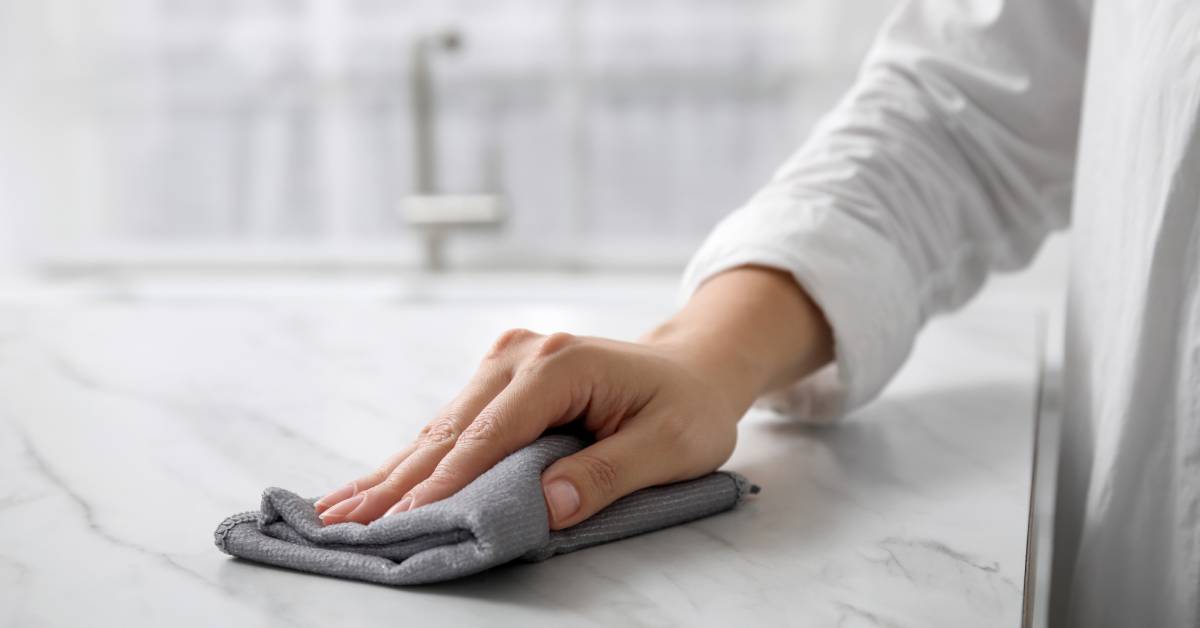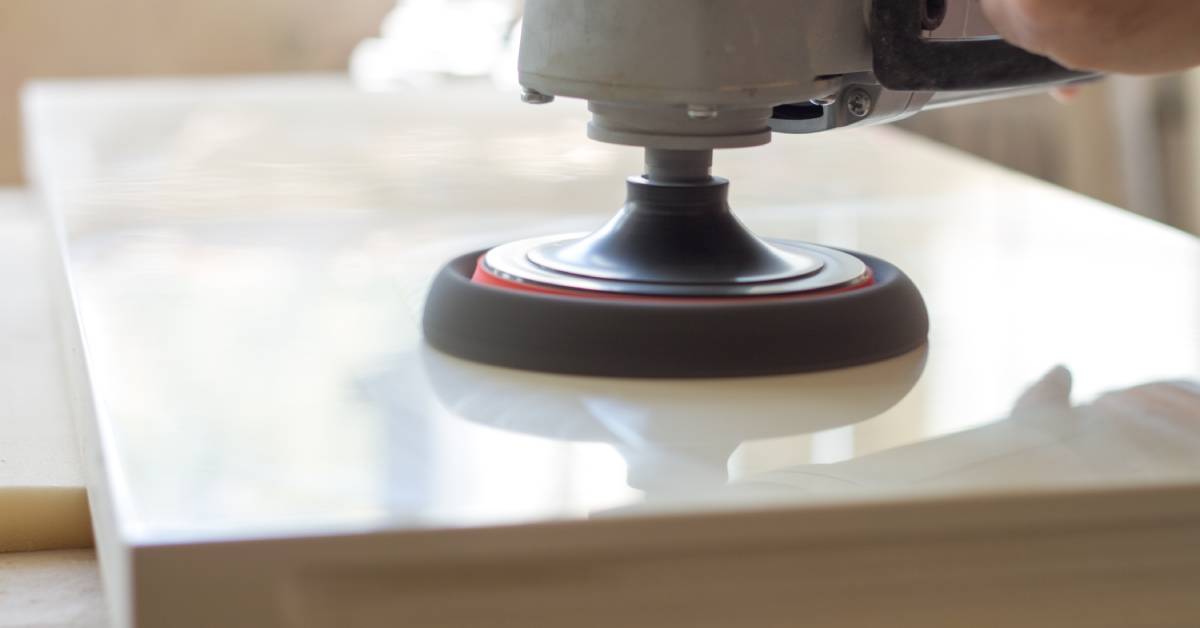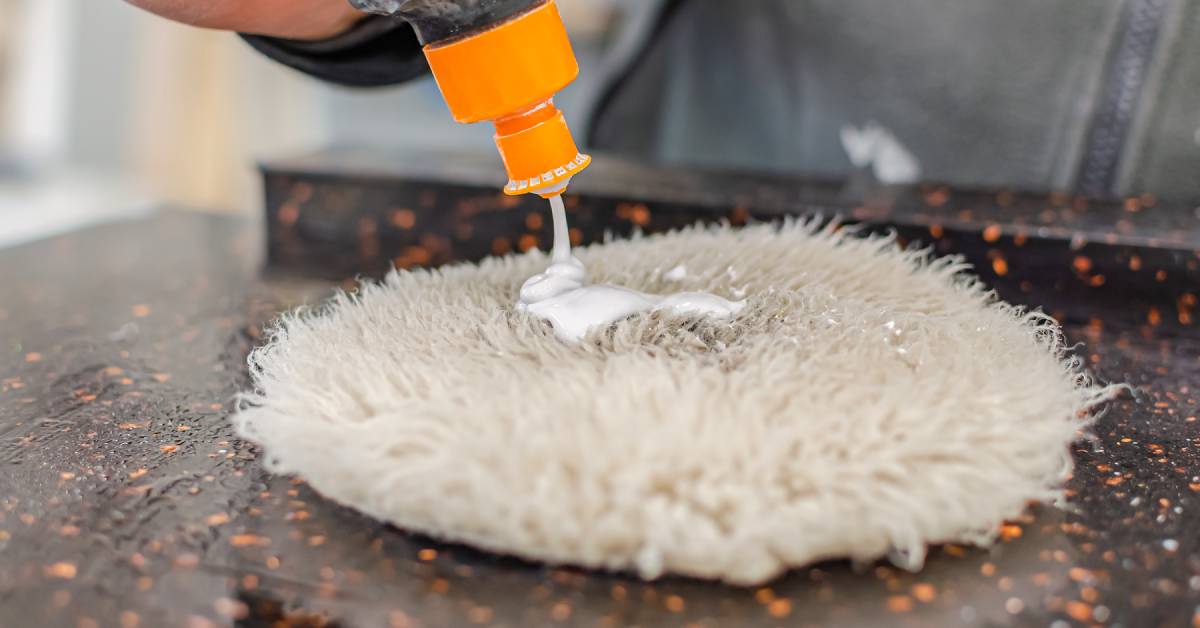Innovations That Have Changed Material Handling Equipment
Material handling has evolved with groundbreaking advancements that enhance efficiency, safety, and productivity in industrial operations around the world.
FREE SHIPPING FOR ALL ORDERS ABOVE $250 | Except LTL Shipments

Material handling has evolved with groundbreaking advancements that enhance efficiency, safety, and productivity in industrial operations around the world.
Deciding between manual and automatic tile cutters? Compare their features, efficiency, and ease of use to choose the right tool for precise tile cutting.
Prevent errors in natural stone projects and achieve flawless results and long-lasting pieces with the following advice on proper techniques and care.
Stone countertops are a beautiful and durable addition to any home, enhancing both the functionality and aesthetics of your kitchen or bathroom. Whether you’ve opted for granite, marble, quartz, or another natural stone, these materials are built to last. However, they aren’t impervious to damage, and solving stone countertop problems as they arise is crucial to maintaining their beauty and longevity.
Over time, even the toughest countertops can develop minor imperfections, discoloration, or wear that detract from their appearance and functionality. But don’t worry—we’re here to help! In our maintenance guide, we’ll explain how everyday homeowners and kitchen renovators can solve some of the most common stone countertop problems, from scratches to stains, discoloration, and more!
While stone countertops are strong and long-lasting, daily use exposes them to stressors that can cause damage. Here are some of the most common problems homeowners encounter with their stone surfaces.
Heavy pots, pans, and utensils can cause scratches and chips when dragged across the countertop surface. While these blemishes may seem minor at first, they can worsen over time if homeowners don’t address them. If you accidentally scratch or chip your stone countertop, you should look to fix it right away.
Porous stones like marble and granite are particularly prone to staining from spills. Substances like wine, coffee, oil, or juice can seep into the surface and leave permanent marks if the person doesn’t immediately clean them. Solving Stone Countertop Problems related to stains involves quick action and specific cleaning methods.
Harsh cleaning products, chemical exposure, or excessive sunlight can cause discoloration in stone countertops, dulling their natural vibrancy. These stains may not be immediately noticeable but can accumulate over time.
Structural stress within the stone countertop, such as uneven weight distribution or even sudden temperature changes, can cause the stone to crack. For example, placing a hot pan directly on the surface without protection can cause hairline cracks, which may widen over time and compromise the countertop’s integrity.
Acidic substances like lemon juice or vinegar can damage stone surfaces, particularly softer materials like marble. These acids corrode the stone, leaving behind dull or discolored spots known as etching.
Daily use and wear can make even well-maintained countertops fade and lose their lustrous shine over time. Abrasive cleaning pads and constant cleaning can wear down the polish, reducing the countertop’s shine.

As the stone countertop naturally shifts due to temperature changes or if the new home is settling into its foundation, seams may appear. While some seams are unavoidable, proper installation and regular care can help minimize their appearance.
If you have a stone countertop in your home, you’ve likely encountered some of these common problems, but how do you solve them? We’ve got solutions for every issue your stone countertop may come across!
For minor scratches and chips, gently sand the area using fine-grit sandpaper for stone surfaces. For deeper damage, apply a high-quality stone repair epoxy.
Products such as stone fillers or resins can blend seamlessly into the stone’s natural pattern. After application, use a polishing pad to restore smoothness and shine.
To treat organic stains like coffee or juice, apply a paste of baking soda and water, let it sit, and then wipe it clean. For oil-based stains, use a stone-safe degreaser to remove them effectively. After cleaning, consider applying countertop sealant to the surface to protect the stone against future stains.
Homeowners and kitchen renovators can address chemical or sunlight discoloration by using a professional-grade stone cleaner to restore vibrancy. For more stubborn cases, buffing the area with a stone polishing compound should help restore its color. To prevent future fading, keep countertops away from direct sunlight or consider applying protective UV-resistant films.
For structural stress and temperature shift cracks, clean the crack thoroughly and then fill it with clear or colored stone epoxy. The epoxy will fill the gap and reinforce the damaged area. Once the epoxy sets, sand and polish the surface to ensure a smooth finish.
Homeowners can treat acid etching, common on marble countertops, with a marble polishing powder for small areas. For severe etching, use a restoration kit for natural stone specifically. After repairs, apply a sealant to protect the surface from future acid damage.
To revive shine on dull countertops, start by cleaning the surface thoroughly to remove dirt and debris. Then, use polishing pads along with a stone polish for your specific stone, such as granite, marble, or quartz. This ensures a premium finish that is ideal for your countertop.
For visible seams, use a color-matched stone caulk or epoxy to fill in the gaps. Once the material dries, polish the surface to create a consistent appearance. Regular maintenance and inspections can help prevent seams from becoming noticeable over time.

Preventing damage is easier than repairing it, so keep your countertops in top shape with these simple maintenance tips. Clean them daily with a mild, stone-safe cleaner and a soft cloth, avoiding abrasive materials or harsh chemicals that can wear down protective sealants. Regularly seal porous materials like marble or granite to prevent stains and damage from liquid absorption.
Protect your countertops by using cutting boards, trivets, and coasters to avoid scratches, heat, and moisture exposure. Inspect them often for small cracks, chips, or stains, and address any minor issues early to save time and effort later. With these precautions, you can extend the lifespan of your countertops and save yourself a lot of repair trouble.
While no countertop material is completely immune to wear and tear, some are more durable and practical than others, depending on your lifestyle and kitchen needs. Quartz countertops, for instance, are non-porous, making them highly resistant to stains, scratches, and bacteria buildup. Granite, on the other hand, is a natural stone that provides toughness and can withstand heat, making it ideal for high-traffic kitchens.
Marble, while undeniably elegant and timeless in its beauty, is more prone to etching and staining, especially from acidic substances like lemon juice or wine, so it requires extra care and regular sealing to maintain its luxurious appeal. Other options, such as butcher block and laminate, may offer different benefits but can also vary in durability and maintenance needs. Research your options carefully before purchasing to ensure the material aligns with your aesthetic preferences, daily usage, and maintenance expectations.
Whether you’re a commercial stone material handler, a homeowner, or a kitchen renovator, Detroit Diamond Tools has everything you need to maintain, repair, and restore your countertops. From high-quality polishing pads to stone sealers and epoxy repair kits, we offer industry-leading products and expertise you can trust.
Explore our extensive range of countertop maintenance tools and products to keep your stone surfaces flawless. If you’re not sure what your countertop needs, contact our staff to speak with a stone expert today!
To fix minor scratches on your stone countertop, use fine-grit sandpaper for light sanding. For deeper scratches, apply a high-quality stone repair epoxy, smooth it out, and polish it for a seamless finish.
Discoloration can be caused by harsh cleaning chemicals or prolonged sun exposure. To correct this, use a professional stone cleaner, and for stubborn cases, buff with a stone polishing compound.
Yes, to repair cracks, clean the affected area thoroughly and fill it with stone epoxy. After the epoxy sets, sand and polish to restore the countertop’s smooth finish.
To restore shine, clean your countertop thoroughly, then use a stone polish or polishing pads designed for your specific stone type (granite, quartz, etc.) for a premium finish.
Use color-matched stone caulk or epoxy to fill in the seams. Once it dries, polish the area to create a consistent surface, minimizing the seam’s appearance.
We inventory products you see on our site
On all ground shipping Items
We'll beat the price from any competitor
Dedicated sales & support team
